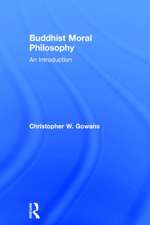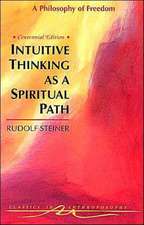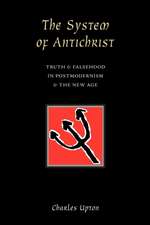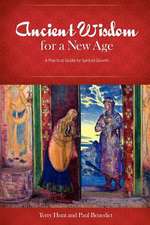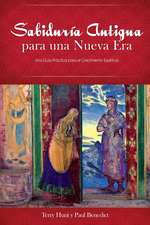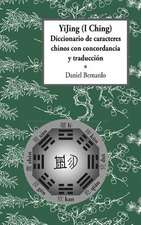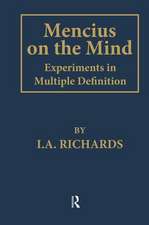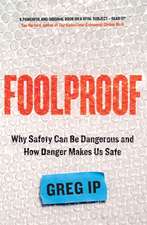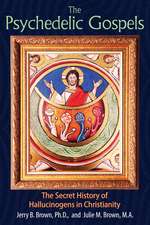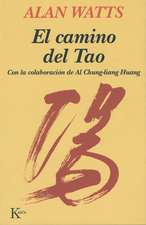Psychotherapy East and West
Autor Alan Wattsen Limba Engleză Paperback – 13 feb 2017
Preț: 83.09 lei
Preț vechi: 100.36 lei
-17% Nou
Puncte Express: 125
Preț estimativ în valută:
15.90€ • 16.40$ • 13.46£
15.90€ • 16.40$ • 13.46£
Carte disponibilă
Livrare economică 11-18 februarie
Livrare express 28 ianuarie-01 februarie pentru 37.15 lei
Preluare comenzi: 021 569.72.76
Specificații
ISBN-13: 9781608684564
ISBN-10: 1608684563
Pagini: 172
Dimensiuni: 140 x 216 x 15 mm
Greutate: 0.24 kg
Editura: NEW WORLD LIBRARY
Colecția New World Library
ISBN-10: 1608684563
Pagini: 172
Dimensiuni: 140 x 216 x 15 mm
Greutate: 0.24 kg
Editura: NEW WORLD LIBRARY
Colecția New World Library
Notă biografică
Spiritual philosopher Alan Watts, student of Buddhism, Anglican minister, chaplain at Northwestern University, author of more than twenty books, and counterculture icon, died in 1973.
Descriere
Man is burdened with an ego that is in constant conflict with society and nature, in perpetual flight from loneliness and death. Despite its diverse methods, the single aim of psychotherapy is to free man from his endless self-battle.
Alan Watts’s arresting, provocative study shows how Eastern philosophers long ago faced—and solved—the problem of man’s existence in a seemingly hostile universe. Buddhism, Vedanta, and Taoism are examined and related to the theories of Freud, Jung, Sullivan, and May. The inscrutable wisdom of Zen masters is made clear by Alan Watts as he explains how the modern “fiction” of the ego has clouded the sights of psychotherapy and blocked Western man from his true place in nature.
The source of modern man’s conflict, according to Watts, is the society that traps the ego in a “doublebind” of contradictory demands. This is the Hindu-Buddhist maya, or social illusion, which one must apprehend before one can be aware of a universal reality. When psychotherapy merely helps the individual to adjust to social norms, it falls short of true liberation; Eastern philosophy seeks man's natural relation to the cosmos.
In this invigorating analysis, Watts maintains that Western science and art are reaching a closer agreement with the Eastern view of nature than is conventional psychotherapy. The powerful insights of Freud and Jung brought psychiatry close to the edge of liberation, but stopped short because of concepts which are deeply rooted in Western culture. The fallacy of the ego, the burden of guilt, Alan Watts suggests, can be finally removed for modern man by unlocking the secrets of Eastern wisdom.
Alan Watts’s arresting, provocative study shows how Eastern philosophers long ago faced—and solved—the problem of man’s existence in a seemingly hostile universe. Buddhism, Vedanta, and Taoism are examined and related to the theories of Freud, Jung, Sullivan, and May. The inscrutable wisdom of Zen masters is made clear by Alan Watts as he explains how the modern “fiction” of the ego has clouded the sights of psychotherapy and blocked Western man from his true place in nature.
The source of modern man’s conflict, according to Watts, is the society that traps the ego in a “doublebind” of contradictory demands. This is the Hindu-Buddhist maya, or social illusion, which one must apprehend before one can be aware of a universal reality. When psychotherapy merely helps the individual to adjust to social norms, it falls short of true liberation; Eastern philosophy seeks man's natural relation to the cosmos.
In this invigorating analysis, Watts maintains that Western science and art are reaching a closer agreement with the Eastern view of nature than is conventional psychotherapy. The powerful insights of Freud and Jung brought psychiatry close to the edge of liberation, but stopped short because of concepts which are deeply rooted in Western culture. The fallacy of the ego, the burden of guilt, Alan Watts suggests, can be finally removed for modern man by unlocking the secrets of Eastern wisdom.



